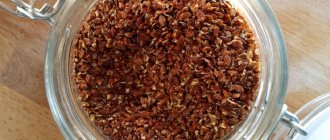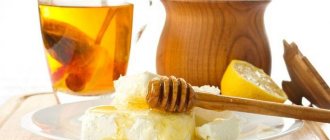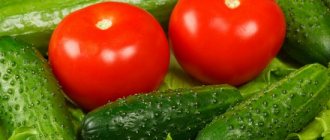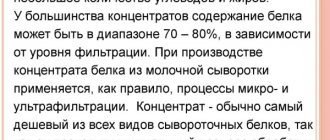© lenkaprusova — stock.adobe.com
Share:
Yogurt is a tasty and healthy fermented milk product made from milk and sourdough. Systematic consumption of the drink helps to normalize the gastrointestinal tract, strengthen the immune system and improve overall well-being. Homemade yogurt is a 100% natural product. It promotes weight loss, normalizes digestion, and improves skin condition. Yogurt contains a large amount of minerals, active living bacteria, vitamins and fatty acids necessary for the body to function properly.
Properties of drinking yoghurt
How much does drinking yogurt cost (average price for 1 jar)?
Moscow and Moscow region.
50 rub.
For quite a long period of time, such a fermented milk food product as yogurt continues to enjoy worldwide popularity and demand among buyers of all ages, as well as income levels. At its core, yogurt is nothing more than a fermented milk food product, the basis of the chemical composition of which is skim milk.
To produce yogurt, lactic acid bacteria Lactobacillus bulgaricus, popularly known as Bulgarian bacillus, as well as thermophilic streptococcus or Streptococcus thermophilus are usually used. It is believed that real or natural yogurt should contain only two components - milk and sourdough.
However, in our time, food manufacturers in the vast majority of cases use various food additives in the process of preparing one or another type of food product, including yogurt. It is worth noting that until now, researchers have not been able to reliably establish the authorship of the yogurt recipe.
Some researchers consider Bulgaria to be the birthplace of yogurt. The ancestors of modern Bulgarians, the Bulgar tribe, invented a recipe for yogurt, which at first was made exclusively from sheep’s milk. Yogurt got its original name from the Turkish word yoğurt, which literally means “condensed.” According to the second version, yogurt was invented by the ancient Scythians, as well as related nomadic peoples.
Nowadays, food manufacturers offer a wide range of yoghurts. Drinking yogurt has become especially popular lately. It is worth noting that the composition of drinking yogurt is not much different from the usual well-known fermented milk product. First of all, drinking yogurt stands out for its consistency.
From the name of the product it becomes clear that this type of yogurt is intended for drinking. This is quite convenient, especially with the crazy pace of city life. Modern people often have a snack on the go, and drinking yogurt was invented just for such quick meals. It is worth noting that, in terms of its distinctive parameters, drinking yogurt differs little from a regular product.
Composition and calorie content of yogurt
The chemical composition of yogurt is similar to kefir and has a similar effect on the human body. The calorie content of the homemade product is low and amounts to 66.8 kcal per 100 g. The energy value of purchased natural yogurt (1.5% fat) is 57.1 kcal, Greek - 76.1 kcal per 100 g.
Nutritional value of yogurt per 100 g:
| Nutrient | Home | Natural | Greek |
| Fats | 3,2 | 1,6 | 4,1 |
| Squirrels | 5,1 | 4,1 | 7,5 |
| Carbohydrates | 3,5 | 5,9 | 2,5 |
| Water | 86,3 | 86,5 | – |
| Ash | 0,7 | 0,9 | – |
| Organic acids | 1,3 | 1,1 | – |
The ratio of BJU of a natural product is 1/0.4/1.4, Greek – 1/0.5/0.3, homemade – 1.1/0.5/0.3 per 100 grams, respectively.
Any drinking yogurt (thermostatic, natural, pasteurized, lactose-free, etc.) is suitable for dietary nutrition, but the presence of sugar and other food additives does not make the products equally healthy and effective, so for weight loss it is recommended to give preference to homemade, white, prepared with your own hands yogurt.
The chemical composition of fermented milk product per 100 g is presented in table form:
| Item name | Contents in yogurt |
| Zinc, mg | 0,004 |
| Iodine, mcg | 9,1 |
| Copper, mg | 0,01 |
| Iron, mg | 0,1 |
| Fluorine, mg | 0,02 |
| Selenium, mg | 0,002 |
| Potassium, mg | 147 |
| Sulfur, mg | 27 |
| Magnesium, mg | 15 |
| Calcium, mg | 122 |
| Phosphorus, mg | 96 |
| Chlorine, mg | 100 |
| Sodium, mg | 52 |
| Vitamin A, mg | 0,022 |
| Choline, mg | 40 |
| Vitamin PP, mg | 1,4 |
| Ascorbic acid, mg | 0,6 |
| Vitamin B6, mg | 0,05 |
| Thiamine, mg | 0,04 |
| Vitamin B2, mg | 0,2 |
| Vitamin B12, mcg | 0,43 |
In addition, yogurt contains lactose in the amount of 3.5 g, glucose - 0.03 g, disaccharides - 3.5 g per 100 g, as well as essential and non-essential amino acids and poly- and monounsaturated fatty acids, such as omega- 3 and omega-6.
© valentinamaslova — stock.adobe.com
Composition of drinking yogurt
Drinking yogurt is also made from milk that has been fermented using bacteria. However, the composition of drinking yogurt may include not only the above-mentioned Bulgarian bacillus and thermophilic streptococcus, but also bifidobacteria L.diacetylactis, Leuconostoc spp. and others. These bifidobacteria help a person overcome harmful infections that usually cause severe diseases of the gastrointestinal tract.
The calorie content of drinking yogurt depends on many factors and, above all, on the composition of the original ingredients that were used in the manufacturing process of the product. However, the average caloric content of drinking yogurt is 72 kcal, which is contained in 100 grams of the product.
Yogurt as a means to lose weight
To get rid of extra pounds, it is recommended to consume homemade natural yogurt daily, but not more than 300 g per day. To lose weight, it is advisable to drink the drink both at night before bed and during the day together with other products.
You can do fasting days on fermented milk products, but even then you don’t need to injure the body with a hunger strike. The main thing is to exclude fried, flour, fatty and sweet foods from your diet. For breakfast, in addition to yogurt, you are allowed to eat fruit, whole grain bread, and drink green tea. For lunch - a vegetable salad (with a light dressing of olive oil and lemon juice or yogurt directly). For dinner - fruits, berries, greens, bread.
A fasting day will cleanse the intestines and unload the stomach. Toxins and waste will be removed from the body, bloating and heaviness in the stomach will disappear.
During a fasting day, the total amount of fermented milk product consumed should not exceed 500 g.
To achieve the best weight loss results, it is recommended to replace one meal with yogurt at least once a day.
The fermented milk product is combined with:
- with buckwheat porridge;
- bran;
- oatmeal;
- fruits and berries;
- cottage cheese;
- flax seeds.
After 2 weeks of following the new diet, the weight will move off the ground and the volume around the waist will go away. To make the weight loss effect stronger, you must adhere to the following rules: do not eat at least 3 hours before bedtime, drink 2 liters of fluid per day, and also increase physical activity.
© BRAD - stock.adobe.com
How is a yoghurt product different from yoghurt?
– A yoghurt product differs from yoghurt in a reduced content of lactic acid microorganisms (CFU), since thermization is used in its preparation technology, however, in composition it is the same product as yoghurt, but in its production the use of thickeners, preservatives, etc. is allowed, – explains Elena Yurova. – These products, of course, can be on the same shelf, since they do not contain a milk fat substitute (vegetable fat).
Appearance and markings
- Package. This is the first thing Elena Yurova recommends paying attention to before purchasing. The packaging must be intact, without any damage. The text placed on the packaging must be clearly readable.
- The name of the product is “yogurt”.
- Fat percentage (mass fraction of fat). This is not basic information, but it is important for people who are on a diet and consider the fat content of the product. For low-fat yogurt (with a fat mass fraction of less than 0.5%), it is allowed not to indicate the fat mass fraction.
- The shelf life of yogurt is no more than 30 days.
- Place and date of production. If fermented milk products were delivered, for example, from the Krasnodar Territory to Moscow, its production cannot be dated “today”.
- Storage temperature – 4±2 °C.
- The inscription "TU". It shouldn't scare you. Any manufacturer can manufacture a product according to its own technical specifications (TU), and the standards of its TU can be even higher than in GOST.
- The composition should first indicate the raw materials from which the yogurt is made, for example whole or normalized milk using starter culture.
Yogurt contains milk powder
– Don’t be alarmed if you see the words “milk powder” in the ingredients. Its use is officially permitted, as it is associated with legislative requirements regarding the increased content of SOMO in yogurt, explains Elena Yurova. – Without milk powder, the manufacturer will never reach the required standard, which is established for pure natural products: 9.5% mass fraction of SOMO.
If a manufacturer does not indicate powdered milk in the composition of yogurt, but at the same time produces yogurt as “natural” or “classic”, then he misleads the buyer, since it is not clear how he achieves an increased content of SOMO, unless the raw milk containing SOMO is not less than 9.5% comes from elite cows, which, as you understand, is unlikely.
Allowed and prohibited additives
– Sometimes you can read “enriched yogurt” on the label. This means that the manufacturer additionally added bifidocultures to the lactic acid microorganisms, added acidophilus bacillus, etc., explains Elena Yurova. “In addition, there are yoghurts that contain inulin and vitamins, but such products are more expensive and, as a rule, are classified either as baby food products or in the category of “therapeutic and prophylactic product.”
Yogurts are very widely represented on the Russian market; they contain fruit and berry fillings, jams, muesli, and pieces of fruit as additives. They are added to yogurt along with filler, sugar and thickener (pectin, starch, gelatin, etc.). The composition of such yoghurts includes the so-called “Eshki” (from E).
Why and what E-additives are allowed in fruit yoghurts?
Larisa Abdullaeva
Head of the standardization group of the Russian Dairy Union
– Mandatory additives in yoghurts are, of course, fermentation of lactic acid microorganisms. If yogurt is “white,” as we call it, then it contains, in addition to milk, dairy products necessary to normalize it in terms of the mass fraction of protein, fat (for example, cream, milk powder, etc.), leaven and sugar (but sometimes even without it - it’s already a pure classic, like Mechnikov’s curdled milk), there is nothing more. But most often yogurt is produced with fruit filling. This yogurt, in addition to the above, contains fruit filling. Stabilizing additives are also allowed (so that milk and fruit do not come into conflict with each other during storage, so that the mass retains its original structure, so that whey does not separate, etc.). The composition of the fruit filler and simply the recipe for fruit yogurt may contain permitted food additives - dyes, flavors, stabilizers, thickeners, antioxidants, etc.
It is difficult to produce fruit yogurt without any food additives on an industrial scale.
Berries and fruits are a different, non-dairy environment; it must be neutralized, otherwise it will interfere with the normal functioning of the lactic acid microflora. Of course, it is possible to make fruit yogurt without any food additives, but it will be a product with a very short shelf life and practically cannot be stored.
Advice
Do you want natural yogurt with fruits and berries without E-additives? Buy pure “white” yogurt, add strawberries (or other berries and fruits) to it at home, and eat it right away.
Permitted food additives in yogurt are established by GOST 31981 (section “Requirements for raw materials”). The milk part and fruit filling are prescribed in the labeling of yogurt. If we are talking about strawberry yogurt, then it is a compound dairy product and contains food additives. Manufacturers, as a rule, purchase ready-made fruit filling (jam, preserves, etc.), and it already contains some food additives, which are indicated in the labeling as part of the filler.
Harm and contraindications for use
First of all, yogurt can be harmful to human health in case of lactose intolerance or an allergic reaction to the product. There are a number of contraindications to consuming fermented milk products, namely:
- chronic bloating;
- stomach upset;
- ulcer;
- duodenal diseases;
- gastritis;
- age up to 1 year.
The longer the shelf life of yogurt, the fewer useful components it contains and the more flavors and various food additives that help the product not to sour. In addition, the fruits that are included in store-bought yogurts do not have any beneficial properties and in most cases cannot be called natural products.
Bifidobacteria, the most valuable component in the product, disappear after a few days of storing yogurt, therefore, after the specified time, nothing useful remains in the fermented milk product.
In addition, store-bought yoghurts contain a large amount of sugar, which destroys tooth enamel, irritates the mucous membranes and does not contribute to weight loss.
© Boyarkina Marina — stock.adobe.com









